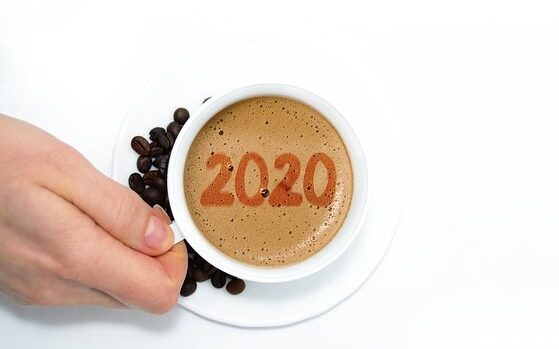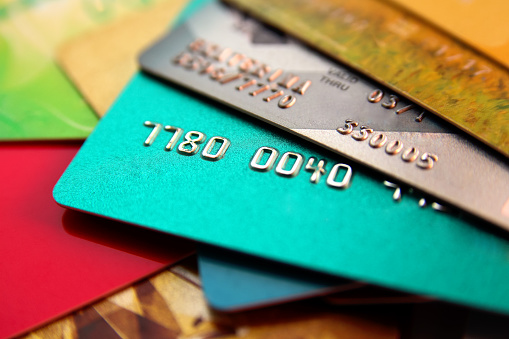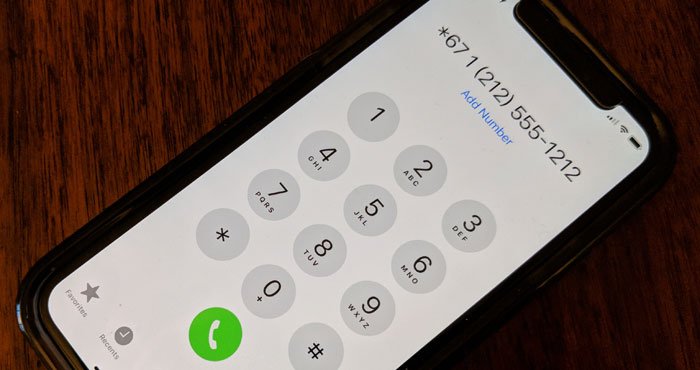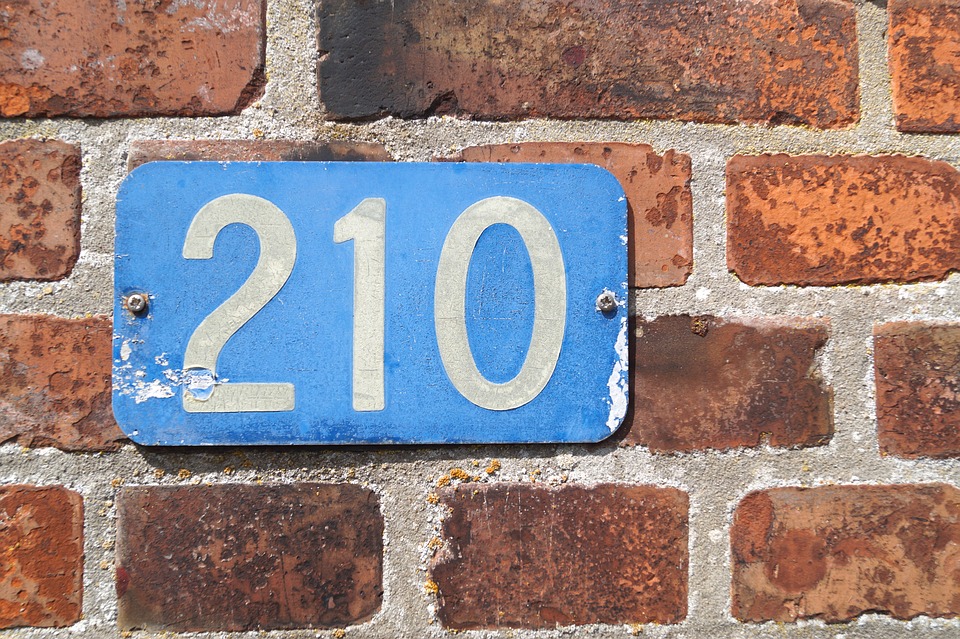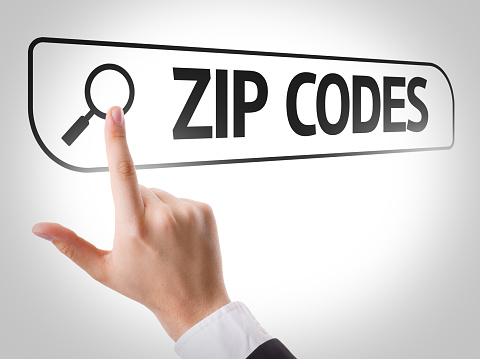
How to Read Big Numbers in English
Numbers all around you.
Knowing how to read large numbers in English is an essential skill — especially if you live, work or study in an English-speaking country, and even if you’re just starting to learn English for beginners.
Don’t worry. We’ll make this as easy as one, two, three.
Here’s how to read large numbers in English!
Contents
- General Rules and Tip for Reading Large Numbers
- Special Rules for Different Types of Numbers
- How Can You Practice Using Large Numbers?
- And One More Thing...
Download: This blog post is available as a convenient and portable PDF that you can take anywhere. Click here to get a copy. (Download)
General Rules and Tip for Reading Large Numbers
As in many languages, the basic tools you need to read large numbers in English are the numbers from 1 to 100.
Start with learning all about those basics and then you will build on these basics to make larger numbers.
The first thing you’ll need now is to know the names for larger groups of numbers.
Learn the names for large numbers
You’ve surely heard these names before: Thousand. Million. Billion. Trillion.
You might also have heard the term “place value.”
It basically means that the position of a single digit (numeral) within a number will indicate how big it is. There’s a “ones place,” a “tens place,” a “hundreds place,” and so on.
For example, in the number 123, or “one hundred twenty-three,” the 1 is in the hundreds place, the 2 is in the tens place and the 3 is in the ones place.
So, how do thousands, millions and billions match up with numerals? Let’s take a look.
1000 — one thousand
10,000 — ten thousand
100,000 — one hundred thousand
1,000,000 — one million
10,000,000 — ten million
100,000,000 — one hundred million
1,000,000,000 — one billion
Before we get to the really, really big numbers, let’s pause for a moment and talk about one of the differences between American and British English.
In American English, 1,000,000,000 is called a “billion.” In British English, this number is still sometimes called a “thousand million.” However, this difference is going away. British English is starting to use the same words as American English to describe the same huge sets of numbers.
So, back to the big numbers:
1,000,000,000,000 — one trillion
1,000,000,000,000,000 — one quadrillion
1,000,000,000,000,000,000 — one quintillion
1,000,000,000,000,000,000,000 — one sextillion
1,000,000,000,000,000,000,000,000 — one septillion
I’m going to tell you a little secret: Unless you’re a professional mathematician, you’ll probably never need any number grouping larger than a trillion.
Truly, most English speakers don’t ordinarily use “quadrillion,” “septillion” or any of the other numbers larger than a trillion.
To talk in a very general way about a really large number, most English speakers rely on made-up words like these:
- Zillion
- Jillion
- Kajillion
- Gazillion
- Bajillion
Use any of these terms to show that a number is just ridiculously large.
Group numbers using correct punctuation marks
In many languages, big numbers are grouped together with a “dot” or decimal point. For example, in French, you’d read 12.300 as “douze mille, trois cents” — in other words, “twelve thousand three hundred.”
In English, you’d instead use a comma to separate groups of numbers in threes.
For example:
12,300 — “Twelve thousand, three hundred”
1,500,050 — “One million, five hundred thousand fifty”
Just as many European languages use dots where English uses commas in large numbers, the opposite is also true: English uses dots to show fractions of numbers.
You’ll see this a lot in currency. Whereas something might cost €1.485,27 in Europe, it would be priced at $1,485.27 in the United States.
For example:
$4.99 — “Four dollars and ninety-nine cents” (note that you might also hear this read as “four ninety-nine”)
$645.50 — “Six hundred forty-five dollars and fifty cents”
Read numbers between 1100 and 9999 with “hundred”
Some people will use “hundred,” rather than “thousand,” to read numbers between 1100 and 9999. This is especially true in American English.
The basic pattern is that the number in the thousands place is joined with the number in the hundreds place, and they’re read as one unit.
For example:
- 1100 can be read as “eleven hundred,” rather than “one thousand, one hundred.”
- 3200 can be read as “thirty-two hundred,” rather than “three thousand, two hundred.”
- 4552 can be read as “forty-five hundred fifty-two,” rather than “four thousand, five hundred fifty-two.”
- 8429 can be read as “eighty-four hundred twenty-nine,” rather than “eight thousand, four hundred twenty-nine.”
You’ll sometimes hear this when Americans refer to the White House by its address, as “sixteen hundred Pennsylvania Avenue” (1600 Pennsylvania Avenue).
Another example is the science-fiction series “The 4400,” which is read as, “The Forty-Four Hundred.”
Use singular number words for specific numbers
In English, when we say specific large numbers, words such as “thousand,” “hundred thousand,” “million,” “billion” and “trillion” always stay singular — even though what they’re describing, like “dollars” or “people,” are plural.
So, you would say “five million dollars ($5,000,000)” but not “five millions dollars.” “Sixty thousand people (60,000 people)” is correct. “Sixty thousands people” is not.
You’d only say “hundreds” or “thousands” or “millions” if you weren’t specifying a particular number. In other words, you can correctly say, “billions of people” or “trillions of dollars,” as long as you’re not including an exact figure.
But, if you were to say an exact number—like “five billion people” or “eighteen trillion dollars”—you’d have to drop the “s.”
(Optional) Use “and” when reading large numbers
You might hear an English speaker say, “Twenty-two thousand, eight hundred and forty-two” for 22,842. Another English speaker might simply say, “Twenty-two thousand, eight forty-two” for that number.
Should the second speaker have said “and” between “eight hundred” and “forty-two?” Which is correct?
Technically speaking, you should use the “and” where there’s a decimal point in the number. For instance, it should always be used when you’re talking about money, especially larger numbers: “This house costs five hundred thousand dollars and ninety-five cents,” or $500,000.95.
However, many people will use “and” to break up larger numbers. Although this is technically incorrect, it’s largely a matter of style and you’ll be understood either way.
If “four thousand eight hundred and ninety-five” seems easier to understand than “four thousand eight hundred ninety-five,” feel free to use “and.”
(Optional) Replace “one” with “a” in large number words
English speakers will often say “a hundred” for 100, rather than saying “one hundred.” The same is true for “a thousand,” “a billion” or “a trillion.”
Both are acceptable. Using “a” in place of “one” is simply more casual.
Special Rules for Different Types of Numbers
When large numbers are used in English in different contexts, special rules for reading them sometimes apply. This is true when talking about years, phone numbers, street address numbers and various other concepts.
Years
When talking about years up until the year 2000 AD, English speakers usually group the name of the year into two sets of two digits. In other words, “1984” would be pronounced “nineteen eighty-four,” because “19” would be grouped together as “nineteen,” and “84” would be grouped together as “eighty-four.”
Therefore:
1183 — “eleven eighty-three”
1454 — “fourteen fifty-four”
1770 — “seventeen seventy”
1801 — “eighteen oh-one”*
*The “oh” is used for the zero, whenever the last two digits of the year are between 01 (“oh one”) and 09 (“oh nine”).
1827 — “eighteen twenty-seven”
1908 — “nineteen oh-eight”*
1964 — “nineteen sixty-four”
1992 — “nineteen ninety-two”
For years that end in zero, you would say “hundred” at the end:
1100 — “eleven hundred”
1600 — “sixteen hundred”
1800 — “eighteen hundred”
1900 — “nineteen hundred”
After 1999, things got tricky.
The year 2000 is pronounced, “two thousand.”
2001 might be pronounced “two thousand one,” “two thousand and one” or “twenty oh-one.”
2005 — “two thousand five” or “twenty oh-five”
2014 — “two thousand fourteen” or “twenty fourteen”
2019 — “two thousand nineteen” or “twenty nineteen”
2023 — “two thousand twenty three” or “twenty twenty three”
Either way is correct.
Amounts of money
For amounts of money up to a million dollars, all the digits are normally written out. So, you’ll see $10,000 for “ten thousand dollars” and $489,946 for “four hundred thousand eighty-nine, nine hundred forty-six dollars.”
Even though the dollar sign ($) comes before the numbers, you say the word “dollars” after you read out the numbers.
For imprecise amounts of one million or more, you’ll often see letters used in place of the digits.
This is especially true in newspaper headlines and in graphics used in news broadcasts.
M is used for million; B is used for billion. These are the two you’ll see most often. Sometimes, you might see T for trillion. The letters used to represent numbers are always uppercase.
| $5M | $5 million | $5,000,000 | five million dollars |
| $16B | $16 billion | $16,000,000,000 | sixteen billion dollars |
| $32T | $32 trillion | $32,000,000,000,000 | thirty-two trillion dollars |
| $682M | $682 million | $682,000,000 | six hundred eighty-two million dollars |
Sometimes, you’ll see these abbreviations used for other statistics. For instance, you might see a newspaper headline that says, “7.8B People Live on Earth.” This is a quick way to say that there are 7,800,000,000 humans on this planet.
Credit card numbers and account numbers
When 16-digit credit card numbers are read aloud, they’re usually read in groups of four. Most Americans tend to say each number individually.
So, if your credit card number were 1234 5600 5648 9921, you’d say: “one two three four,” (pause) “five six zero zero,” (pause) “five six four eight,” (pause) “nine nine two one.”
Some people might read that number as, “twelve thirty-four,” (pause) “fifty-six hundred,” (pause) “fifty-six forty-eight” (pause) “ninety-nine twenty-one.”
Either way is acceptable.
In British English, the last four numbers of our fictional credit card number would be read as “double nine twenty-one.” If a digit were repeated three times, like 8884, it would be pronounced, “triple eight four.”
Phone numbers
Just as in credit card numbers, phone numbers in British English use double and triple numbers. However, 0 (zero) is almost always pronounced “oh.” 0800 would be “oh eight hundred” and 500 would be “five hundred.”
In American English, each number would be said individually: 555-7722 would be pronounced as “five, five, five, seven seven two two.” Americans would pronounce 800 as “eight hundred,” but say either “seven oh two” or “seven zero two” for 702.
Numbers in addresses
There are typically two large numbers to read in addresses: the house number and the ZIP (postal) code.
House numbers
The house numbers in addresses can be somewhat long — especially in North America.
Addresses in both Canada and the United States often include numbered blocks. These block numbers become part of house numbers.
If you’re watching or reading the news, you may hear that something happened in the “thirty-three hundred” (3300) block of a certain street. It’s common to see house numbers like “4228” or “10548” written before a street name.
Most native speakers would pronounce a four-digit house number by combining the numbers in groups of two. So, “4228” would usually be “forty-two twenty-eight.” However, you might also hear, “four two two eight.”
“10548” could be read in a few different ways:
- “one oh five four eight”
- “one oh five forty-eight”
- “one zero five four eight”
There aren’t any fixed rules for reading house numbers. Reading them out as individual digits — for example, reading “648925” as “six four eight nine two five” — is probably the easiest and most understandable way.
ZIP codes
In the United States, the postal codes are called ZIP codes. These are five to nine digits long. The digits are usually read out one at a time:
90210 — “nine oh two one oh”
60542 — “six oh five four two”
38116-1835 — “three eight one one six” (pause) “one eight three five”
75094-4879 — “seven five oh nine four” (pause) “four eight seven nine”
20500-1776 — “two oh five oh oh” (pause) “one seven seven six”
Sometimes, people will say “dash” in between the first five numbers and the last four numbers of a ZIP code. (Technically, the punctuation mark between the digits in a ZIP code is a hyphen, but many native English speakers say “dash” when they mean “hyphen.”)
How Can You Practice Using Large Numbers?
As with any English-language skill you learn, you’ll need to practice reading numbers in English to really become fluent. Fortunately, there are many opportunities to exercise your counting skills!
Find numbers everywhere
Pay attention to the headlines of the financial news and look for large numbers. For example, you might see a headline like, “LargeCo Sells Assets to MegaCorp for $3M” or “MegaCorp Fined $147,500 for Illegal Trade Deal.”
You’ll see particularly large when you’re buying a big-ticket item like a car or a computerIf you’re looking for an apartment to rent or a house to buy, you’ll see large numbers in real estate listings.
Whenever you watch a news broadcast, you’ll get the chance to hear large numbers. For instance, you might hear, “Fifty-two thousand, nine hundred eighty-two people out of fifty-three thousand surveyed believe that the Earth is round.”
You can also seek out numbers in the English videos on FluentU. You can do this by searching for the numbers you want to practice to see videos where they appear, or by adding numbers to a flashcard deck directly from any video as you study.
FluentU takes authentic videos—like music videos, movie trailers, news and inspiring talks—and turns them into personalized language learning lessons.
You can try FluentU for free for 2 weeks. Check out the website or download the iOS app or Android app.
P.S. Click here to take advantage of our current sale! (Expires at the end of this month.)

Watch instructional videos
Fortunately, there are hundreds of videos on YouTube that can help you learn and practice this skill. Here are a few.
Using the example of large distances in outer space, “Read Big Numbers” from tenframe shows you how to break down big numbers in English into hundreds, thousands, millions and billions.
Sometimes, English speakers read the same number in different ways, which can be confusing. “How to Say BIG NUMBERS in English” from Speak English with Vanessa will explain several ways to read large numbers.
Ready to test what you know? Crown Academy of English’s “English listening quiz – NUMBERS” gives you the chance to write down the English numbers you hear as numerals. (The answers are shown quickly after each question. Pause the video, if you need more time to answer.)
Check out these number-filled videos to get extra practice:
- An 11-Year-Old Kid Genius
- Tips for Finding a Four-Leaf Clover
- A Poor Millennial’s Guide to Finances
- How Climate Change Affects Poverty
- What’s The Most Successful Species on Earth?
Use ESL resources
With people from all over the world learning English as a second language, the internet is full of ESL resources. Worksheets and online games can give you lots of hands-on practice at recognizing, reading and writing out large English numbers.
Try the large number worksheets from iSL Collective, Busy Teacher and Teach This.
For more playful practice, go up against Floyd the Dog in Number Hold’em 2. Guide a green monster to the correct large number in the Monster Numbers game.
Play newscaster
After you’ve read English-language news articles and watched some English-language news broadcasts to listen to large numbers, it’s time to take a more active role.
Imagine that you’re a famous correspondent or news presenter. Find some English news articles with statistics or other large numbers.
Pretend that you’re sitting at a news desk and read the articles aloud. You could even use your mobile phone to record yourself.
Ask a trusted friend, tutor or conversation partner with a good understanding of the English language to give you some feedback. Did you pronounce all of the numbers correctly? Did you use the right phrases and expressions?
So, now you have all the tools you need to handle reading years, amounts of money, credit card numbers, phone numbers and addresses in English.
Will you get a lot of chances to practice reading large English numbers?
You can count on it!
And One More Thing...
If you like learning English through movies and online media, you should also check out FluentU. FluentU lets you learn English from popular talk shows, catchy music videos and funny commercials, as you can see here:
The FluentU app and website makes it really easy to watch English videos. There are captions that are interactive. That means you can tap on any word to see an image, definition, and useful examples.
For example, when you tap on the word "searching," you see this:
Learn all the vocabulary in any video with quizzes. Swipe left or right to see more examples for the word you’re learning.

FluentU helps you learn fast with useful questions and multiple examples. Learn more.
The best part? FluentU remembers the vocabulary that you’re learning. It gives you extra practice with difficult words—and reminds you when it’s time to review what you’ve learned. You have a truly personalized experience.
Start using the FluentU website on your computer or tablet or, better yet, download the FluentU app from the iTunes or Google Play store. Click here to take advantage of our current sale! (Expires at the end of this month.)






